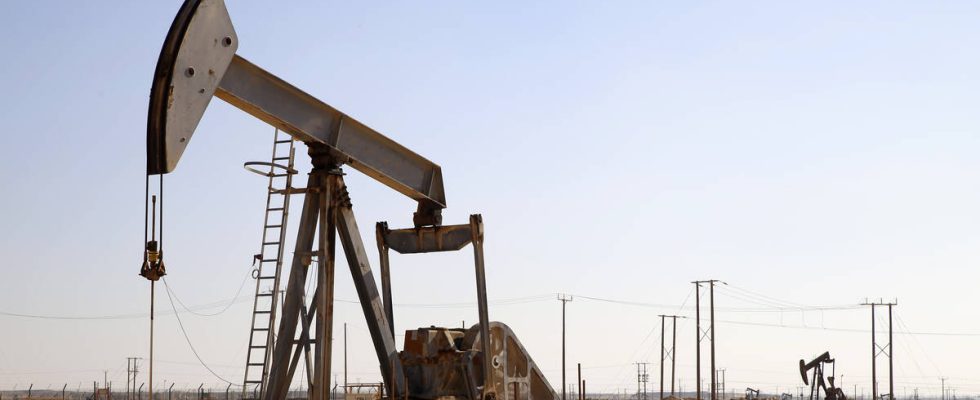Economic consequences
The opening of Asian markets on Monday October 9 was marked by the surge in oil prices, as a result of the Hamas offensive on Israel, raising fears of supply problems from the region.
Oil prices soared by more than 4% on Monday October 9 after the surprise offensive this weekend by the Palestinian Islamist movement Hamas against Israel, raising concerns about its consequences for supplies from the rich region. in black gold. The price of a barrel of Brent from the North Sea jumped 4.7% to $86.65. As for a barrel of American West Texas Intermediate (WTI), it was up 4.5% to $88.39 at the start of trading on Asian markets.
Israel’s surprise attack and declaration of war on Sunday against the Palestinian Islamist movement have already left more than 1,100 dead and a new rise in tensions is feared in the Middle East. “What is decisive for the markets is whether the conflict remains contained or spreads to other regions, particularly Saudi Arabia.said Brian Martin and Daniel Hynes analysts at ANZ. At least initially, markets appear to believe that the situation will remain limited in scope, duration and impact on oil prices. But we can expect greater volatility.»
This crisis comes at a time when oil prices are already high due to concerns over a drop in production from Russia and Saudi Arabia. It also raises fears about its consequences on inflation. Rising energy costs are one of the main causes of the current price surge.
Fall in production maintained
WTI and Brent, the two global benchmarks, first briefly increased by more than 5% on the Asian markets before falling back below this bar. Stephen Innes of SPI Asset Management, however, cautioned, saying that history has shown “that oil prices tend to post lasting gains after crises in the Middle East“.
On Friday, oil prices ended slightly higher in New York, benefiting only marginally from the return of appetite for risk, offset by persistent concerns about global demand and the partial lifting of restrictions imposed by Russia exports diesel. Furthermore, last week, a panel from the Organization of the Petroleum Exporting Countries and their allies OPEC+ recommended maintaining the current strategy of lowering production, reinforced by Saudi and Russian cuts, with the aim of supporting course.
OPEC + also welcomed “Saudi Arabia’s efforts», leader of the group, which has voluntarily reduced its production by one million barrels per day since July. The Saudi Ministry of Energy has confirmed the continuation of this measure until the end of 2023. The kingdom’s production should therefore amount to around 9 million barrels per day for the months of November and December, it is specified.
Russia, another OPEC+ heavyweight, is also maintaining the reduction in its exports of around 300,000 barrels per day until December, said Deputy Prime Minister Alexandre Novak. These decisions come on top of the reductions introduced since the beginning of May and in force until the end of 2024 by nine countries, including Riyadh, Moscow, Baghdad and Dubai, for a total of 1.6 million barrels daily.

